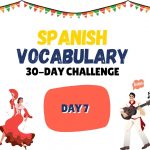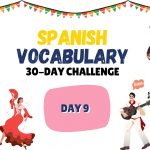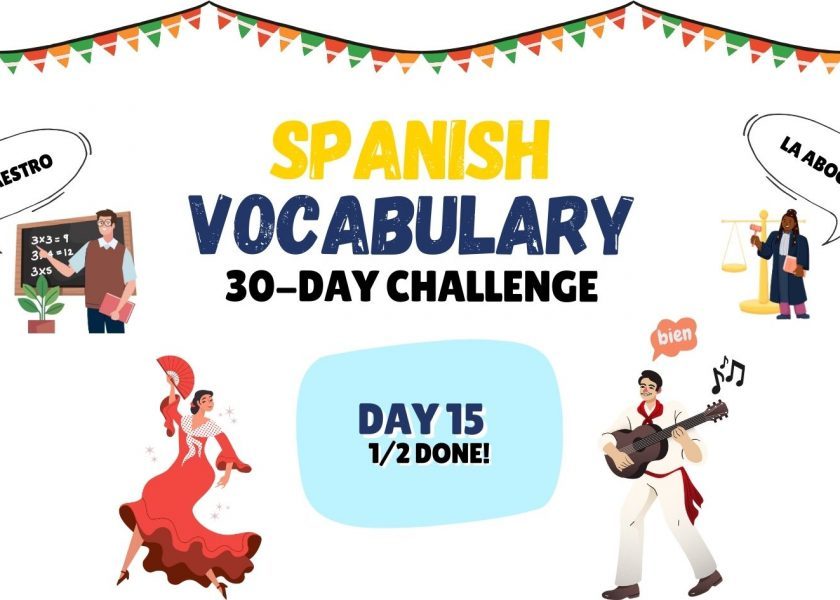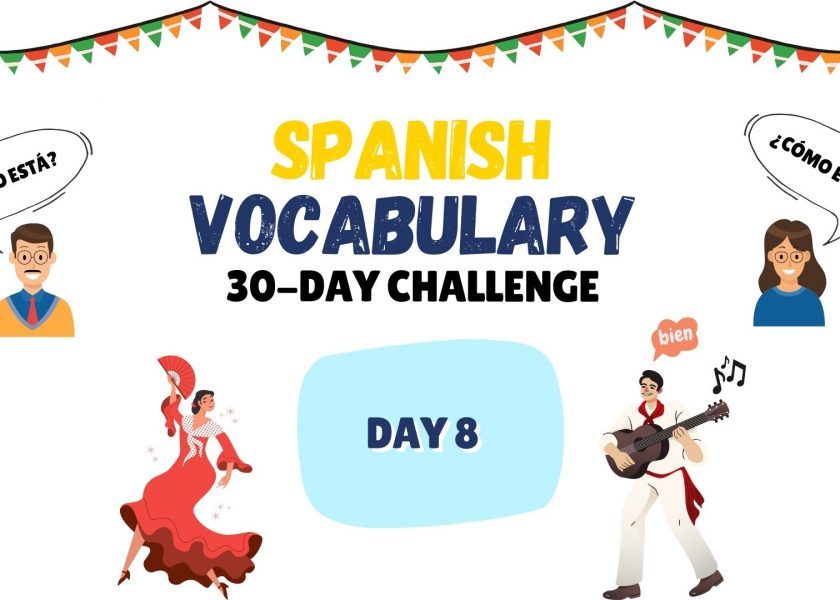
Day 8: Día 8: ¿Cómo Estás? Learning Spanish Vocabulary to ask ‘How are you?’
Learning Spanish online can be fun if there is some structure. This 30-day challenge aims to do just that! We’re on day 8 and so far, you’ve memorized multiple Spanish vocabulary lists that are useful for you. But the best part is that they were all structured in a way that supports the memorization process. If you were given random words like apple, friend, brother, boat, building – how much of these would you have remembered?
Take a moment and think back on the progress you’ve made so far and give yourself a pat on the back!
Now, after learning to introduce ourselves and ask names, the next crucial step is being able to ask how someone is doing.
Having these expressions in your vocabulary will allow you to move beyond basic introductions and engage in friendly small talk. Let’s get started!
¿Cómo está? | How are you? (formal) |
| ¿Cómo estás? komo eys-taas (‘t’ has a soft sound) | How are you? (informal) |
| ¿Qué tal? kay taal (‘t’ has a soft sound) | How’s it going? (informal) |
| ¿Cómo están? komo eys-taan (‘t’ has a soft sound) | How are you all / they? |
| ¿Cómo está (él / ella)? komo eys-taa eyl / eyi-ya (‘t’ has a soft sound) | How is he / she? |
Notes to remember:
- Use formal questions for elders, authorities, or unknown adults out of respect.
- The informal forms apply to friends, family, children, etc.
- Don’t worry – we will be learning spanish vocabulary for the responses to these questions tomorrow!
To check your mastery, let’s practice with some fill in the blanks!
- You want to ask someone how they are in a formal context. You say: “______”.
- You greet a friend informally and want to ask how they are. You say: “______”.
- You want to ask how a group of people are. You say: “______”.
- You need to inquire about the wellbeing of a specific individual (he or she). You say: “______”.
Check your answers!
- ¿Cómo está?
- ¿Cómo estás? / ¿Qué tal?
- ¿Cómo están?
- ¿Cómo está (él / ella)?
By mastering these opening ¿Cómo estás? phrases, you can move beyond basic introductions and engage in friendly small talk en español. The key is using informal forms only with those you’re close with.




